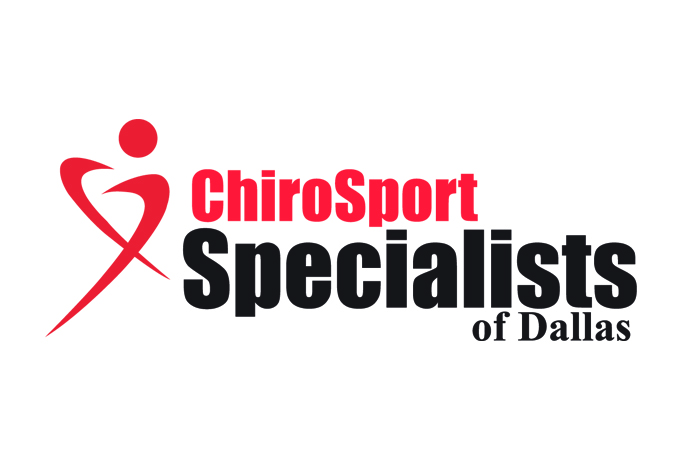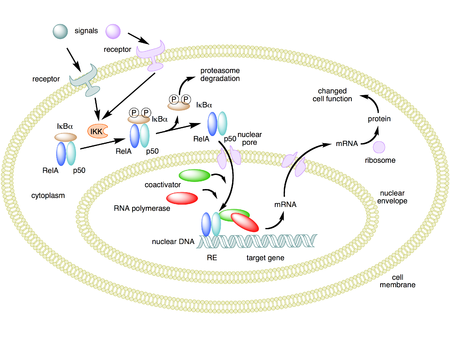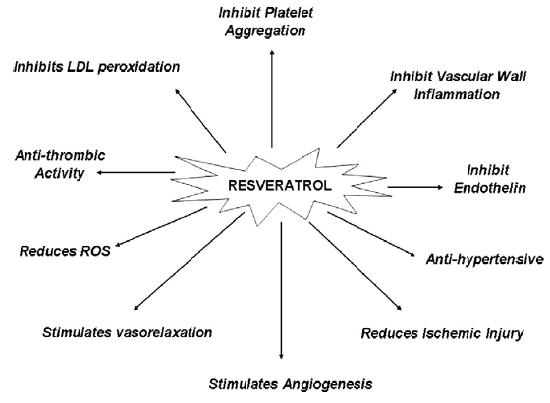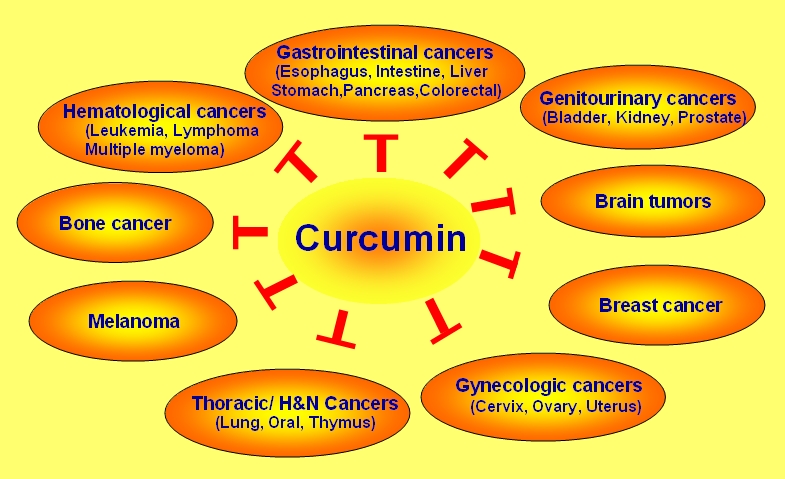The Inflammatory and Autoimmune Signaling Systems Webinar
Many chronic inflammation and autoimmune conditions share a common pathway, the NF-kB (Nuclear Factor-kappa B) system. This system can be affected by the compounds curcumin and resveratrol. Curcumin is the compound found in tumeric, the spice found in Asian curry dishes. Resveratrol is the antioxidant found in red grapes, and more famously red wine.
A Possible Answer to Chronic Inflammation and Autoimmune Disorders
Yesterday I watched a Webinar from Dr. Michael Pierce, who is a Chiropractor, Diplomat in Chiropractic Neurology and also a Fellow for the American College of Functional Neurology. Saying he is smart is vastly underrated. I could sit here for days trying to understand and explain the things he covered in his 50 minute webinar. I did manage to simplify the main points to make them clinically relevant.
Chiropractors are very good at affecting the body with our hands, specifically the musculoskeletal system like the tendons, cartilage, soft tissue and joints. This does also have a neurological component. However, Chiropractors lack the ability to affect things we cannot touch like biological systems, physiological systems, biochemistry and immune pathways. Here’s a way where we can affect the internal chemical systems of the body, by targeting the NF-kB system (pronounced Nuclear Factor kappa B).
NF-kB is a protein complex found in every cell in our body. It is worth noting scientists have estimated we have 37.2 trillion cells in our body (Bianconi 2013). This protein complex controls the transcription of DNA in every cell. It is controlled by external stimuli to the cell including stress, injury, pH change, cytokines (inflammation chemicals) free radicals, antigens (foreign particles) and many others. Once triggered, this system can have a varying response by controlling the gene expression of inflammatory chemicals and enzymes. The Cox 2 enzyme for example, which is the enzyme blocked when you take NSAIDS (Non-steroidal anti inflammatories).
The NF-kB system is normal, and is important for maintaining normal cellular homeostasis and function by getting rid of old cells. However, when these pathways become overactive, is when problems start to occur. Chronic activation of the system is found in cancer, inflammatory conditions and autoimmune diseases. Also, it has been implicated in aging disease such as osteoporosis, sarcopenia, atherosclerosis and diabetes (Tilstra 2011). Once the NF-kB system is stimulated you could develop a problem right away, have a delayed onset of a problem or could lead to multiple problems which seem unrelated. Examples include:
- Developing an allergy later in life
- You believe your body is falling apart
- You have had a chronic problem and develop another one which seems unrelated (but probably is by this NF-kB system)
- Out of nowhere you develop an autoimmune disease
- Your body is aging more or faster than you think it should
The important part to understand about NF-kB is, once it is activated, it is hard to shut off because of its own amplifying loop. Even if the external stimuli are removed, the pathway is still activated.
The NF-kB system can be targeted using 2 powerful substances, curcumin and resveratrol. Curcumin is the bright yellow compound in the Asian spice turmeric, found in curry dishes. Resveratrol is the antioxidant found in red wine. Here is a brief and simplified explanation about what these 2 substances can do:
Resveratrol
- Protection of the nerves in diabetic neuropathy as well as reducing Hba1c
- Possible reversal of cataracts
- Suppresses inflammatory signaling
- Preventing metabolic disease in human visceral adipose tissue
- Prevention and treatment of obesity and diabetes
- Improve cardiovascular disease, especially atherosclerosis
Curcumin
- Counteracts inflammation
- Facilitates new cartilage growth and supports joint cartilage regeneration
- Reverses insulin resistance, high blood sugar, high cholesterol and triglycerides
- Suppresses fat cell activity
- Prevention of obesity
For sources from the Webinar contact me directly, as I will not post exact references due to copyright purposes.
Conclusion
If traditional treatments are not working for certain disease such as vitamin D, K, calcium, magnesium etc for osteoporosis or exercise and diet not working for weight loss, you might want to start looking at the NF-kB pathway. The dosage of both of these compounds was not given, however I will provide some other references. Both compounds are found in supplement as well as natural forms.
Incorporate turmeric (curcumin) into your diet by adding it to your dishes and/or experiment with different types of curry dishes (1-2x per week). You can also find turmeric or curcumin supplements at your local health food store or ask your Chiropractic Physician or Doctor.
Incorporate resveratrol into your diet by drinking a glass of red wine a few times a week or eating grapes, especially red grapes. It will also be beneficial to take a resveratrol supplement, as many of the studies utilized a dosage which is hard to achieve by drinking wine alone.
- Examine.com supplement guide recommends 5-10 mg daily for any unhealthy individual including cardiovascular disease in insulin sensitivity
- Otherwise, they also recommend a dose of 150-445 mg for healthy people
- Upwards of 500 mg doses have been used depending on what the goal is
- A glass of red wine has 450 mcg of resveratrol. To get a dose of 20 mg, you would need 49 glasses of red wine per day!
- In other words, do not depend on drinking red wine alone to get your desired dose of resveratrol. The optimal amount of alcohol changes often, but never 49 glasses of wine per day!
Both are safe for consumption in higher doses.. In human studies, using up to 8000 mg of curcumin per day for 3 months found no toxicity from curcumin. This is a lot of curcumin! Five other human trials using 1125-2500 mg of curcumin per day have also found it to be safe (Chainani 2003). Dr. Weil recommends 400-600 mg 3x per day (5). Examine.com and Dr. Weil both state that curcumin is poorly absorbed in the intestines, therefore one of these conditions needs to be met for the best results:
- Curcumin paired with Black Pepper (piperine)
- Curcumin phytosomes complexed with Phosphatidylcholine (Meriva or BCM-95)
- Curcumin nanoparticles (THERACURCUMIN)
- Water-soluble curcumin (polyvinyl pyrrolidone)
Follow the recommendations on the label and if they are working, you can experiment with taking more. However, consult your Doctor before starting taking either one of these.
Lastly, be patient! Just like many other natural remedies, it may take 8 weeks or more to see any effects!
References
- Bianconi 2013 http://www.ncbi.nlm.nih.gov/pubmed/23829164
- Tilstra 2011 http://www.aginganddisease.org/AD-2011-Robbins.pdf
- Chainani 2003 http://www.ncbi.nlm.nih.gov/pubmed/12676044
- Examine.com supplement reference guide resveratrol and curcumin
- http://www.drweil.com/drw/u/QAA400915/Curcumin-or-Turmeric.html





